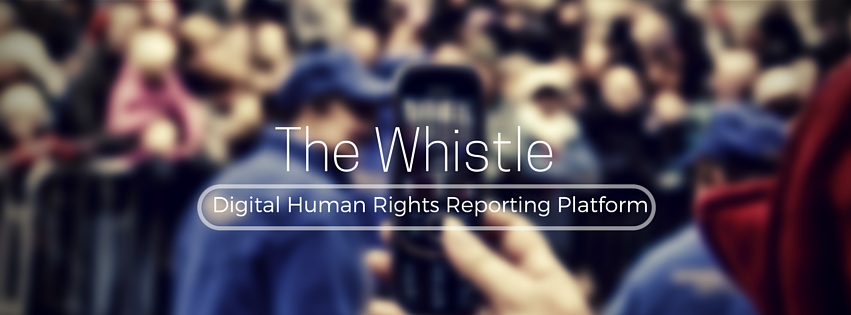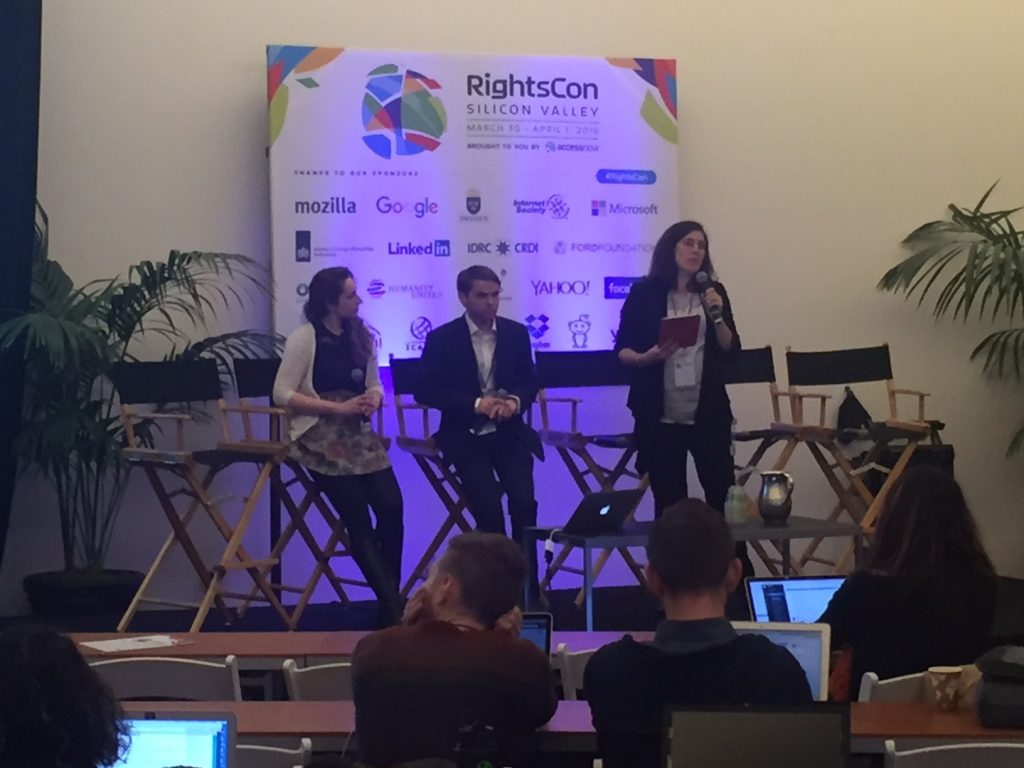“The Whistle App aims to help human rights organisations verify more reports and more quickly… [so that] more voices are heard and more human rights violations can be addressed.”
The Whistle App is a project brought to life by Dr. Ella McPherson, Lecturer in the Sociology of New Media and Digital Technology at Cambridge University in the United Kingdom. She put together a team of students to work on this exciting project that is supposed to help with the verification of human rights information. The Whistle project is based at Cambridge University and is currently funded by an ESRC IAA Grant.
The IPF spoke to The Whistle team member, Rebekah Larsen, a PhD student in sociology at Cambridge, who also holds an MPhil in Technology Policy. Prior to Cambridge, she worked at a US law firm and with a digital rights NGO.
The Whistle will be acting as a mediator and curator of data to help close the gap between NGO’s and verified information by civilian witnesses from all over the world.
Here, Rebekah tells us about The Whistle and why the tool is necessary, as well as some of the challenges that come along with citizen participation in human rights reporting.

The Whistle App team members launch their product to help bridge the gap between human rights organisations and the general public. [Image credit: The Whistle App]
Verification at the heart of The Whistle App
One of the key things about the Whistle is that it will be able to verify reports sent in about possible human rights abuses. Rebekah explained:
“If a human rights organisation is sent a video purporting to show a human rights violation – say, the shooting of a civilian – they subject it to as many verification tests as possible.”
The common practice of verification processes at the moment consists of checking for collaborating reports online, looking at weather data and satellite images at the claimed location to see if it matches what is in the clip, and checking metadata to see if the video has been tampered with. It can be a time-consuming process. Rebekah told the IPF:
“This is the reason why we focus on verification, which has become a bit of a bottleneck for human rights organisations.”
Acting as a new kind of mediator, The Whistle aims to help organisations to correctly and quickly verify as many reports as possible so they can actually address the human rights violations. Social media has done wonders for citizen journalism, but it also means that human rights organisations are often short on time and resources because of the sheer volume of material to be verified and the diffusion and complexity of digital tools used in verification.
“The Whistle aims to help human rights organisations verify more reports and more quickly. This way, more voices are heard and more human rights violations can be addressed.”

The Whistle App hopes to make the verification process easier for human rights organisations. [Image Credit: The Whistle App]
Communication between the witness and the human rights defenders
One aspect the team discusses extensively is if both ends, witness and organisation, should be able to communicate with each other. Rebekah noted that the Whistle wants to ensure that those who report a human rights violation are not identified – and that their information remains private and secure. She added that “feedback to witness” is also something the organisation takes very seriously.
“The vulnerability inherent in reporting a human rights violation means that you don’t want to leave people completely in radio silence.”
The Cambridge University team hopes not only to make the verification process easier for established human rights organisations, but also to make human rights reporting more inclusive and easier for civilian witnesses to serve as a platform for both verifying and educating.
“As our project being at the nexus of academia, technology and human rights, we are uniquely positioned to do this. These sectors are often siloed, and so one of our aims is to combine academic study of human rights reporting with the building of technological tools. This is a rather rare exercise, bringing such fields together, and we hope it will prove fruitful.”
Rebekah and her team are currently working on a prototype with a partner organisation and hope to expand their offerings to organisations in the near future.
For more information about The Whistle, follow them on Twitter.

